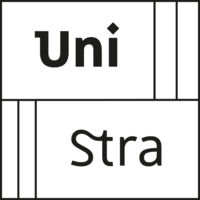预约演示
更新于:2025-05-16
LNP-509
更新于:2025-05-16
概要
基本信息
药物类型 小分子化药 |
别名 LNP 509 |
作用方式 调节剂 |
作用机制 I1 receptor调节剂(Nischarin蛋白调节剂) |
治疗领域 |
在研适应症- |
非在研适应症 |
原研机构 |
在研机构- |
权益机构- |
最高研发阶段终止临床前 |
首次获批日期- |
最高研发阶段(中国)- |
特殊审评- |
结构/序列
分子式C13H23ClN2 |
InChIKeyXJDSAMKMVWIDSN-UHFFFAOYSA-N |
CAS号341501-92-6 |
关联
100 项与 LNP-509 相关的临床结果
登录后查看更多信息
100 项与 LNP-509 相关的转化医学
登录后查看更多信息
100 项与 LNP-509 相关的专利(医药)
登录后查看更多信息
10
项与 LNP-509 相关的文献(医药)2015-07-15·American journal of physiology. Endocrinology and metabolism2区 · 医学
Imidazoline-like drugs improve insulin sensitivity through peripheral stimulation of adiponectin and AMPK pathways in a rat model of glucose intolerance
2区 · 医学
Article
作者: Aiad, Farouk ; Ayme-Dietrich, Estelle ; Bouchoucha, Soumaya ; Niederhoffer, Nathalie ; Bousquet, Pascal ; Dali-Youcef, Nassim ; Weiss, Maud ; Greney, Hugues
Altered adiponectin signaling and chronic sympathetic hyperactivity have both been proposed as key factors in the pathogenesis of metabolic syndrome. We recently reported that activation of I1imidazoline receptors (I1R) improves several symptoms of the metabolic syndrome through sympathoinhibition and increases adiponectin plasma levels in a rat model of metabolic syndrome (Fellmann L, Regnault V, Greney H, et al. J Pharmacol Exp Ther 346: 370–380, 2013). The present study was designed to explore the peripheral component of the beneficial actions of I1R ligands (i.e., sympathoinhibitory independent effects). Aged rats displaying insulin resistance and glucose intolerance were treated with LNP509, a peripherally acting I1R agonist. Glucose tolerance, insulin sensitivity, and adiponectin signaling were assessed at the end of the treatment. Direct actions of the ligand on hepatocyte and adipocyte signaling were also studied. LNP509 reduced the area under the curve of the intravenous glucose tolerance test and enhanced insulin hypoglycemic action and intracellular signaling (Akt phosphorylation), indicating improved glucose tolerance and insulin sensitivity. LNP509 stimulated adiponectin secretion acting at I1R on adipocytes, resulting in increased plasma levels of adiponectin; it also enhanced AMPK phosphorylation in hepatic tissues. Additionally, I1R activation on hepatocytes directly enhanced AMPK phosphorylation. To conclude, I1R ligands can improve insulin sensitivity acting peripherally, independently of sympathoinhibition; stimulation of adiponectin and AMPK pathways at insulin target tissues may account for this effect. This may open a promising new way for the treatment of the metabolic syndrome.
2013-02-01·Combinatorial chemistry & high throughput screening4区 · 医学
Imidazoline-1 Receptor Ligands as Apoptotic Agents: Pharmacophore Modeling and Virtual Docking Study
4区 · 医学
Article
作者: Gemovic, Branislava ; Agbaba, Danica ; Srdic-Rajic, Tatjana ; Veljkovic, Nevena ; Nikolic, Katarina
The group of imidazoline-1 receptors (I(1)-IR) agonists encompasses drugs are currently used in treatment of high blood pressure and hyperglycemia. The I(1)-IR protein structures have not been determined yet, but Nischarin protein that binds numerous imidazoline ligands inducing initiation of various cell-signaling cascades, including apoptosis, is identified as strong I(1)-IR candidate. In this study we examined apoptotic activity of rilmenidine (potent I(1)-IR agonist), moxonidine (moderate I(1)-IR agonist), and efaroxan (I(1)-IR partial agonist) on cancer cell line (K562) expressing Nischarin. The Nischarine domains mapping was performed by use of the Informational Spectrum Method (ISM). The 3D-Quantitative Structure-Activity Relationship (3D-QSAR) and virtual docking studies of 29 I(1)-IR ligands (agonists, partial agonists, and antagonists) were carried out on I(1)-IR receptors binding affinities. The 3D-QSAR study defined 3D-pharmacophore models for I(1)-IR agonistic and I(1)-IR antagonistic activity and created regression model for prediction of I(1)-IR activity of novel compounds. The 3D-QSAR models were applied for design and evaluation of novel I(1)-IR agonists and I(1)-IR antagonists. The most promising I(1)-IR ligands with enhanced activities than parent compounds were proposed for synthesis. The results of 3D-QSAR, ISM, and virtual docking studies were in perfect agreement and allowed precise definition of binding mode of I(1)-IR agonists (Arg 758, Arg 866, Val 981, and Glu 1057) and significantly different binding modes of I(1)-IR antagonists or partial I(1)-IR agonists. The performed theoretical study provides reliable system for evaluation of I(1)-IR agonistic and I(1)-IR antagonistic activity of novel I(1)-IR ligands, as drug candidates with anticancer activities.
2008-05-01·Journal of hypertension2区 · 医学
G-Protein inwardly rectifying potassium channels are involved in the hypotensive effect of I1-imidazoline receptor selective ligands
2区 · 医学
Article
作者: Fellmann, Lyne ; Bousquet, Pascal ; Greney, Hugues ; Urosevic, Dragan ; Yoro Sy, Guata ; Feldman, Josiane
OBJECTIVE:
The present study examined the role of G-protein inwardly rectifying potassium (GIRK) channels in the depressor responses elicited by intracisternal injections of imidazoline-like drugs in anesthetized rabbits.
METHODS AND RESULTS:
Intracisternal injections of the I1-imidazoline receptor (I1R) selective ligands LNP509 (30 microg/kg) and LNP640 (2 microg/kg) (subthreshold doses), and of the GIRK channel opener flupirtine (30 microg/kg) did not affect mean arterial blood pressure (MAP). LNP509 and LNP640, however, elicited substantial depressor responses in rabbits pretreated with flupirtine (-17 +/- 2 and -18 +/- 1 mmHg, respectively, P < 0.05). Injection of higher doses of LNP509 (200 microg/kg) or LNP640 (10 microg/kg) elicited substantial reductions in MAP (-45 +/- 3 and -39 +/- 2 mmHg, respectively, P < 0.05) in naive rabbits. The depressor responses elicited by the higher doses of LNP509 or LNP640 were markedly diminished by pretreatment with the GIRK channel blocker tertiapin-Q (10 microg/kg) (-23 +/- 3 and -26 +/- 2 mmHg, respectively, P < 0.05 compared with nonpretreated rabbits), whereas tertiapin-Q (10 microg/kg) did not affect MAP by itself. Maximal-specific binding (Bmax) of the I1R ligand [I]LNP911 to PC12 cell membranes (296 +/- 59 fmol/mg protein) was enhanced by flupirtine pretreatment whereas it was reduced by tertiapin-Q pretreatment (687 +/- 122 and 68 +/- 21 fmol/mg protein, respectively, P < 0.05 vs. control binding).
CONCLUSION:
These findings demonstrate that the modulation of GIRK channels affects I1R's function and raise the possibility that GIRK channels, and I1Rs are parts of a single proteic complex.
100 项与 LNP-509 相关的药物交易
登录后查看更多信息
研发状态
10 条进展最快的记录, 后查看更多信息
登录
| 适应症 | 最高研发状态 | 国家/地区 | 公司 | 日期 |
|---|---|---|---|---|
| 高血压 | 临床前 | 法国 | - | |
| 高血压 | 临床前 | 法国 | - | |
| 高血压 | 临床前 | 法国 | - |
登录后查看更多信息
临床结果
临床结果
适应症
分期
评价
查看全部结果
| 研究 | 分期 | 人群特征 | 评价人数 | 分组 | 结果 | 评价 | 发布日期 |
|---|
No Data | |||||||
登录后查看更多信息
转化医学
使用我们的转化医学数据加速您的研究。
登录
或

药物交易
使用我们的药物交易数据加速您的研究。
登录
或

核心专利
使用我们的核心专利数据促进您的研究。
登录
或

临床分析
紧跟全球注册中心的最新临床试验。
登录
或

批准
利用最新的监管批准信息加速您的研究。
登录
或

特殊审评
只需点击几下即可了解关键药物信息。
登录
或

生物医药百科问答
全新生物医药AI Agent 覆盖科研全链路,让突破性发现快人一步
立即开始免费试用!
智慧芽新药情报库是智慧芽专为生命科学人士构建的基于AI的创新药情报平台,助您全方位提升您的研发与决策效率。
立即开始数据试用!
智慧芽新药库数据也通过智慧芽数据服务平台,以API或者数据包形式对外开放,助您更加充分利用智慧芽新药情报信息。
生物序列数据库
生物药研发创新
免费使用
化学结构数据库
小分子化药研发创新
免费使用

